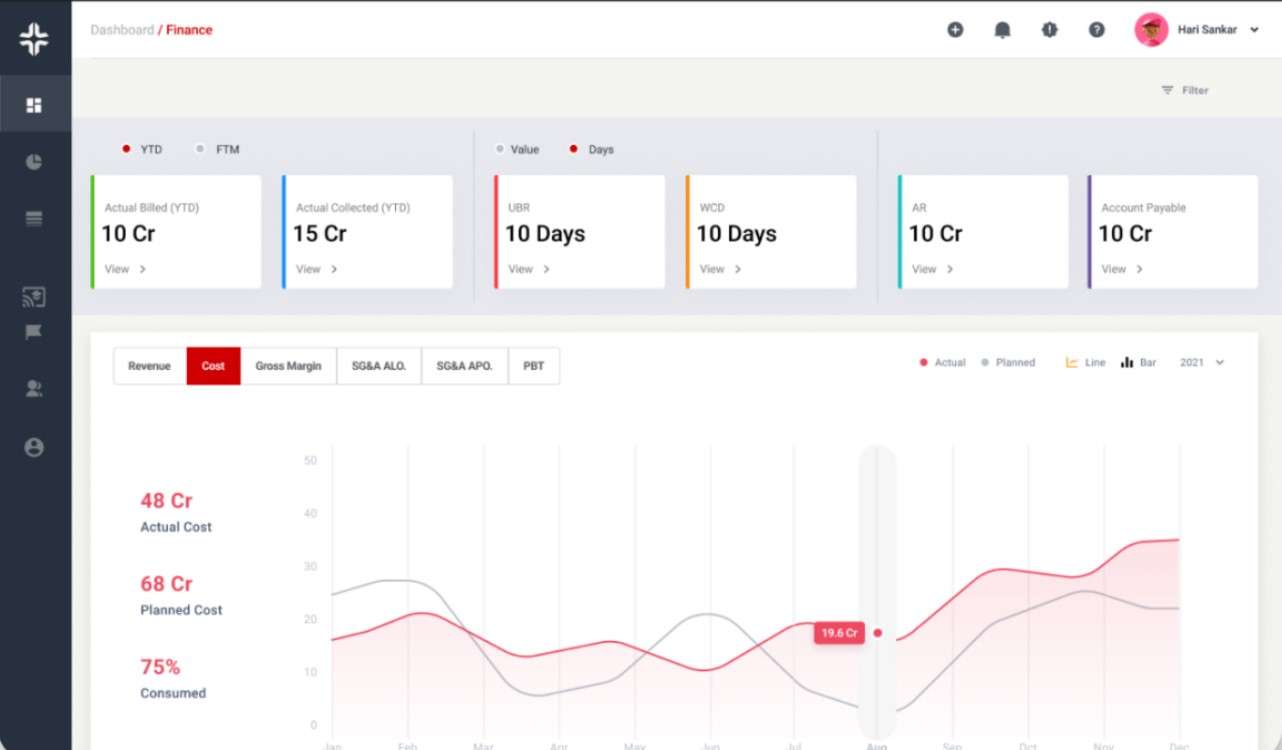Home » PSApedia
Cost-to-Estimate Accuracy
Enhance Project Efficiency with Cost-to-Estimate Accuracy. Ensure Budget Reliability and Optimize Outcomes.

What is Cost-to-Estimate Accuracy?
Cost-to-Estimate Accuracy is a critical metric used in various industries, especially in Professional Service Automation (PSA). It measures the difference between the estimated costs of a project or service and the actual costs incurred.
A high accuracy rate indicates that the estimates are close to the actual costs, ensuring profitability and efficient resource allocation.
Importance of Cost-to-Estimate Accuracy
Understanding the accuracy of cost estimates is vital for several reasons:
1. Budgeting and Forecasting: Accurate estimates ensure that budgets are realistic and prevent unexpected financial shortfalls.
2. Resource Allocation: By understanding the accuracy of estimates, organizations can allocate resources more efficiently, ensuring projects are neither over-resourced nor under-resourced. This is particularly crucial in resource management for PSA.
3. Client Trust: Accurate cost estimates enhance client trust as they can rely on the organization’s financial projections.
4. Profitability: Underestimating costs can lead to financial losses, while overestimating can lead to missed opportunities. Accurate cost estimates ensure maximum profitability.

Why Cost-to-Estimate Accuracy is so important?
Calculating Cost-to-Estimate Accuracy
The formula for Cost-to-Estimate Accuracy is:
Accuracy = (Actual Cost/Estimated Cost) × 100
Example: If a project was estimated to cost $10,000 but actually cost $9,500, the accuracy would be:
Accuracy=(9,500/10,000)×100=95%
This means the estimate was 95% accurate.
Cost-to-Estimate Accuracy vs Other Metrics
While Cost-to-Estimate Accuracy is crucial, it’s essential to differentiate it from other related metrics:
1. Profit Margin: This measures the difference between the revenue and the cost of a project. While Cost-to-Estimate Accuracy focuses on the accuracy of cost predictions, profit margin focuses on profitability.
2. Return on Investment (ROI): ROI measures the profitability of a project relative to its cost. It doesn’t necessarily consider the accuracy of the initial estimate.
3. Estimated vs Actual Duration: This metric compares the estimated time for project completion against the actual time taken. It’s related to project management but doesn’t focus on cost accuracy.
| Metric | Description | Importance in PSA |
|---|---|---|
| Cost-to-Estimate Accuracy | Measures the accuracy of project cost estimates compared to actual costs. A lower value indicates better cost estimation. | High |
| Project Profitability | Evaluates the profitability of projects by comparing revenue to costs. High profitability is desirable. | High |
| Resource Utilization | Measures how effectively resources (employees, equipment, etc.) are utilized on projects. High utilization can increase profitability. | Medium |
Application of Cost-to-Estimate Accuracy
Cost-to-Estimate Accuracy is used in various ways:
1. Project Bidding: Organizations can use their historical accuracy rates to bid more competitively on projects.
2. Performance Evaluation: Managers can assess the performance of their estimating teams based on their accuracy rates.
3. Strategic Decision Making: High-level decisions about resource allocation, hiring, and more can be informed by understanding the organization’s cost estimating accuracy.
4. Financial Planning: Accurate cost estimates are crucial for financial management and planning, ensuring that organizations remain financially stable.
Ready to Optimize Cost-to-Estimate Accuracy?
KEBS, a leading PSA software, offers tools that can significantly enhance Cost-to-Estimate Accuracy. KEBS allows organizations to analyze past projects data, identifying patterns and refining future estimates. With KEBS resource management software, organizations can ensure that resources are allocated efficiently based on accurate cost estimates.
KEBS integrates cost estimating with financial management, ensuring that financial plans are based on accurate estimates.

KEBS Finance Management
Ready to optimize your Cost-to-Estimate Accuracy? Contact KEBS today or request a demo to see how KEBS can transform your estimating processes.



